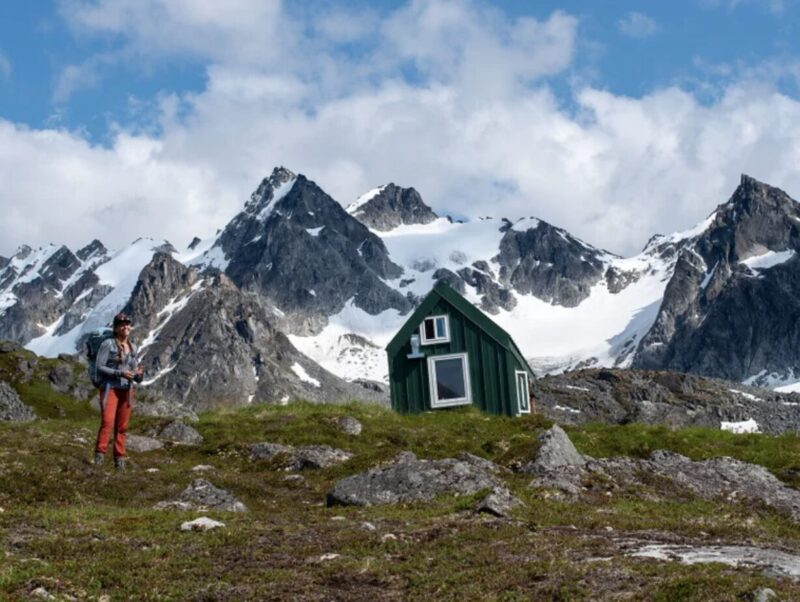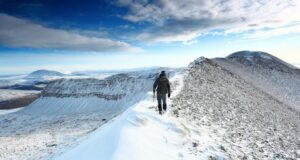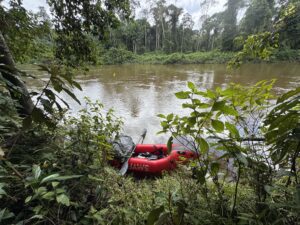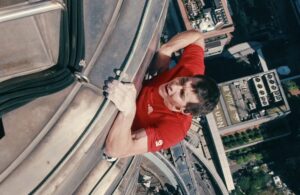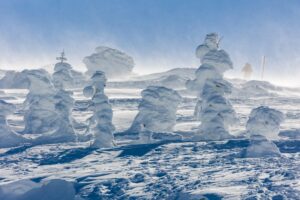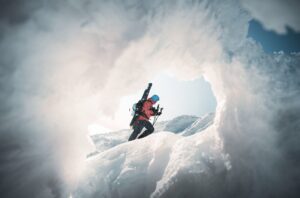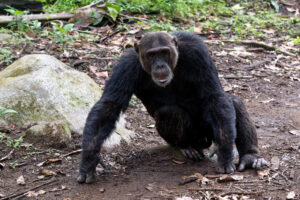When we’re not outdoors, we get our adventure fix by exploring social media and the web. Here are some of the best adventure links we’ve discovered this week.
The Best Backpacking Trip in Alaska: Two Alaskans think they have found the best wilderness backpacking trip in the U.S.
Describing the Bomber Traverse as “equal parts Sound of Music and Lord of the Rings,” the hut-to-hut crosses the Talkeetna Mountains and the Snowbird, Bomber, and Pennyroyal Glaciers. Here, they provide a day-by-day itinerary for anyone wanting to take on their favorite route.
Why a Minnesota Man Walked Around the World: Fifty years ago, David Kunst spent four years walking around the world. He crossed 13 countries and trekked 23,250km.
Kunst had told a colleague he wanted to drive across South America; his colleague countered by saying he wanted to walk around the world. At that moment, Kunst’s dream changed. With a mule carrying their belongings, he set off with his brother on June 20, 1970. In Afghanistan, they were attacked by a group of bandits. Kunst was shot in the chest but miraculously survived. His brother was not so lucky.
Art of the Arctic
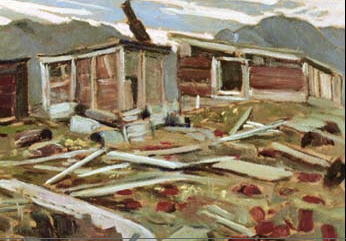
Fort Conger, Ellesmere Island. Painting: Maurice Haycock
Making the Artist of the Arctic: In 1926, Maurice Haycock took part in a geological survey of Baffin Island. For a year, he lived with the Inuit. Haycock threw himself into their way of life while mapping the area. On his return journey, he met two artists and their discussions made him realize he wanted to paint the land he had fallen in love with.
A Glacier’s Deep Secret Is Revealed at Last: In 1937, bush plane pilot Bradford Washburn was flying over the Alaska Range when he noticed a huge glacial mass squeezing through a small granite-walled corridor. He was certain it was looking at the deepest gorge on the continent, possibly the planet. Now scientists have proved him right: it is the deepest gorge in North America.
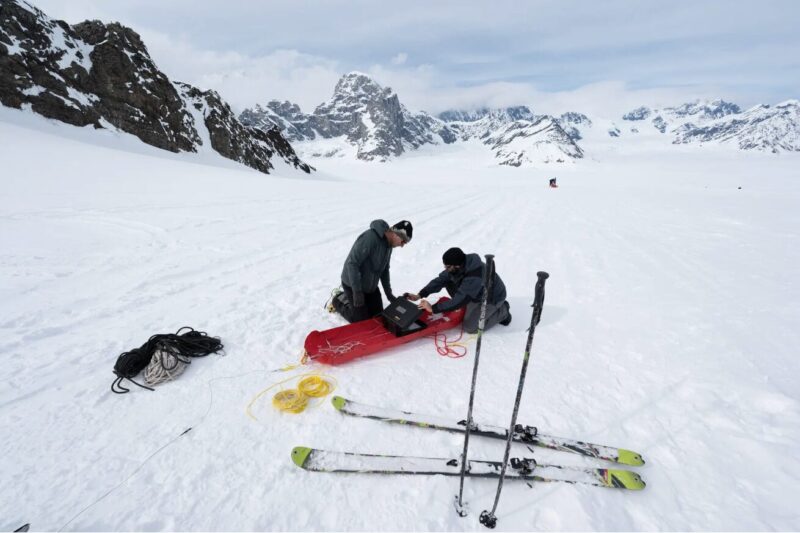
Martin Truffer and Brandon Tober set up the radar system on Ruth Glacier. Photo: Truffer/Tober
Alone in Siberia
Living Alone in the Siberian Wilderness for 40 Years: The Siberian wilderness is one of the harshest environments on Earth, but one family lived alone there for four decades.
In 1978, a pilot spotted signs of human habitation almost 250km from the nearest town. A team of scientists at a nearby temporary base investigated. Over several visits, they pieced together the story of the family of five who lived there.
Six Breathtaking Via Ferratas: Kathleen Rellihan’s first via ferrata was on Whistlers Peak. A decade later, she still feels the same way about them; they are equally fear-inducing, exhilarating, and rewarding. Rellihan lists her top six.
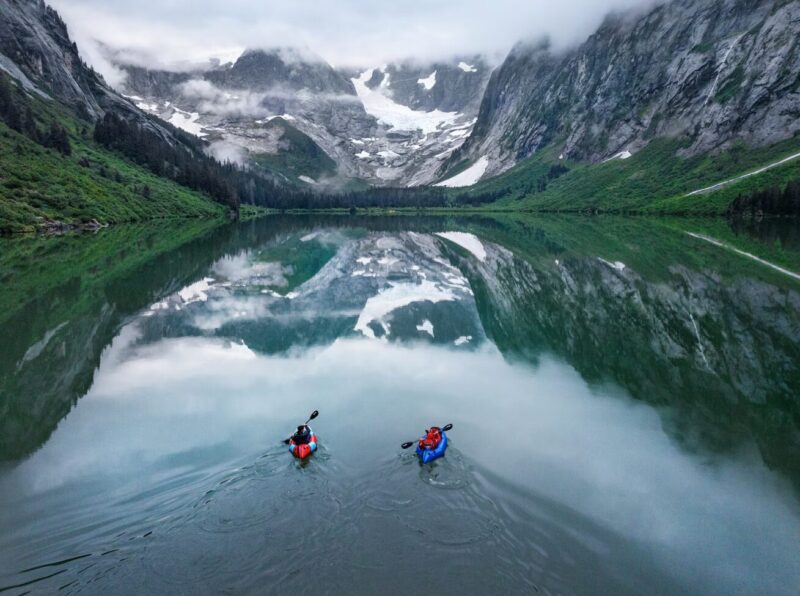
Honnold and Caldwell paddle on Alaska’s Scenery Lake. Photo: Renan Ozturk
The Devil’s Thumb
Making a Treacherous Climb Much, Much Harder: Most consider Devil’s Thumb, a remote 2,767m mountain in Alaska, almost unclimbable. But Alex Honnold and Tommy Caldwell decided to take it on. They also decided to make the route much harder and longer.
Their challenge started from Caldwell’s home in Colorado. Using bikes, kayaks, sailboats, pack rafts, and a sturdy pair of hiking boots, they made a 4,184km journey to the base of the mountain. Then they started climbing.
Identifying Climbers in the Wild: For those trying to find fellow climbers in the wild, here is a round-up of surefire ways to identify them.
Taking the top spot: they will tell you. If you bump into a climber who doesn’t do this, try to catch a glimpse of their hands or feet. The abundance of calluses, scabs, bunions, and missing nails is a giveaway.
